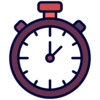Psychometric & IQ Testing
Wechsler IQ Tests and Scales
2.5 years and above
Ψ Wechsler Preschool and Primary Scale of Intelligence (WPPSI)
Ψ Wechsler Intelligence Scale for Children (WISC)
Ψ Wechsler Intelligence Scale for Adults (WAIS)
Ψ Wechsler Abbreviated Scale of Intelligence (WASI-II)
Ψ Wechsler Individual Achievement Test (WIAT-III)
Other Intelligence/ Achievement
Tests and Scales
2 years and above
Ψ Comprehensive Test of Nonverbal Intelligence (CTONI-2)
Ψ Differential Ability Scales (DAS-II)
Ψ Stanford-Binet Intelligence Scales, Fifth Edition (SB-V)
Ψ Test of Nonverbal Intelligence Fourth Edition (TONI-4)
Ψ Wide Range Achievement Test (WRAT-4)
Developmental Assessments
1 ~ 42 months
Ψ Bayley Scales of Infant & Toddler Development (Bayley-III)
Tests for Developmental Sub-Domains
2 years and above
Ψ Beery-Buktenica Developmental Test of Visual-Motor Integration (BEERY VMI)
Ψ Comprehensive Test of Phonological Processing (CTOPP-2)
Ψ Phonological Assessment Battery (PhAB2)
Tests for Adaptive Skills & Behaviours
1 month and above
Ψ Adaptive Behaviour Assessment System (ABAS-3)
Ψ Behaviour Assessment System of Children (BASC-3)
Ψ Vineland Adaptive Behaviour Scales (Vineland-3)
Tests for Autism
12 months and above
Ψ Autism Diagnostic Observation Schedule (ADOS-2)
Ψ Social Responsiveness Scale (SRS-2)
Ψ Autism Diagnostic Interview-Revised (ADI-R)* (screening)
Tests for ADHD
6 years and above
Ψ Conners 3rd Edition
Comprehensive Test of Phonological Processing (CTOPP-2)
If you have spotted signs of reading difficulties in your child or yourself, you may wish to consider the Comprehensive Test of Phonological Processing (CTOPP-2). It is suitable for those aged 4 to 24, with one version of the test suited for children aged 4 to 6 and another version of the test suited for individuals aged 7 to 24.
The CTOPP was developed to facilitate the identification of individuals who might have more difficulties learning to read.
It achieves this by assessing 3 concepts highly related to phonological abilities – phonological awareness, phonological memory and rapid (symbolic) naming, with both versions of the test covering these domains. The developmental score helps with monitoring progress in response to intervention, hence making CTOPP-2 an important assessment tool for educational and school psychologists. CTOPP-2 is also helpful in determining the strengths and weaknesses in phonological processing skills for children and can even flag up potential learning disabilities too, such as dyslexia.
Considering that CTOPP-2 can be used to assess very young children, the scores and information obtained can be immensely helpful in planning and implementing early intervention programs. This would enhance intervention greatly, considering that early intervention is effective in improving the prognosis of reading disabilities.



